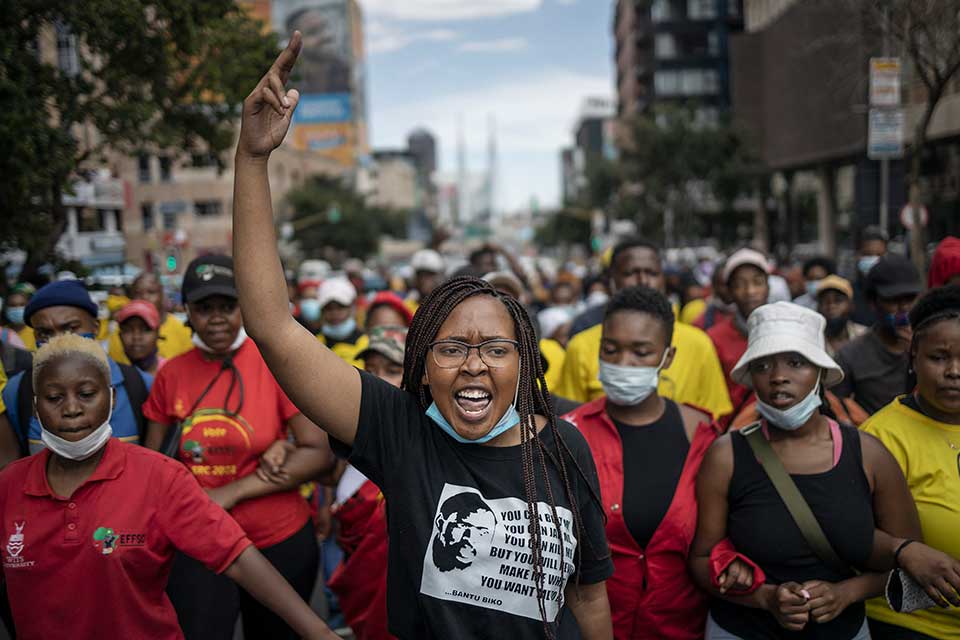Last week was a bloody one in Johannesburg. Wits University, where I used to teach and where I’m currently an affiliate, has seen weeks of student protests. On Wednesday, a standoff turned violent. As the police opened fire with rubber bullets, a bystander stepped out of a clinic directly into the cross-fire. According to eyewitnesses, police didn’t stop shooting even after realizing the situation. The (still unidentified) man died on the pavement.
The tragedy reveals a continental crisis in microcosm. The students have been protesting what in South Africa is called ‘financial exclusions’ – that is, students getting kicked out of university mid-study for not being able to pay tuition. The country’s National Student Financial Aid Scheme is so cash-strapped that it’s not even responding to funding requests from students in their first year. Meanwhile, academic institutions are groaning under massive teaching loads and can barely serve the students who manage to keep up their tuition payments. For those who can’t, the danger of not finishing their degrees feels like a life sentence. They are responding accordingly: by fighting to the death.
People in the China-Africa space frequently talk about the ‘soft power benefit’ of China offering tens of thousands of scholarships to African students, or the ‘soft power deficit’ caused by the Trump administration’s restrictions on students from certain African countries.
These anodyne phrases hide the wrenching reality. Anyone teaching at a South African university can tell stories of brilliant students who took seven, eight years to finish a Bachelor’s degree because they kept having to pause their studies to try and save money for the next tuition payment. For each person making it to graduate school, thousands and thousands of promising students are trapped mid-way, adding to the country’s spiralling unemployment rates.
This is the reality underlying the recommendations from scholars that the U.S. should leverage its mighty university system to build its soft power on the continent. It also provides a clue to why many African students probably won’t mind taking a course in Xi Jinping Thought, if it comes with a coveted Chinese bursary.
I can’t but see the killing outside Wits’s gates as a portent of future clashes between students who know that the only way to draw government attention is by blocking streets and otherwise disrupting the city, and police ready to respond with deadly force.
It’s currently fashionable to praise Africa for its ‘potential,’ its ‘dynamism’ and ‘promise.’ This happy talk turns toxic when it refuses to engage with the fact that this potential is being thwarted at every turn. Constantly thwarted potential is a time-bomb. African governments should be working much closer with foreign powers both East and West to try and defuse it.











